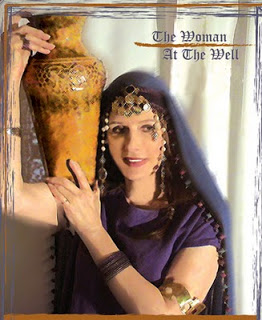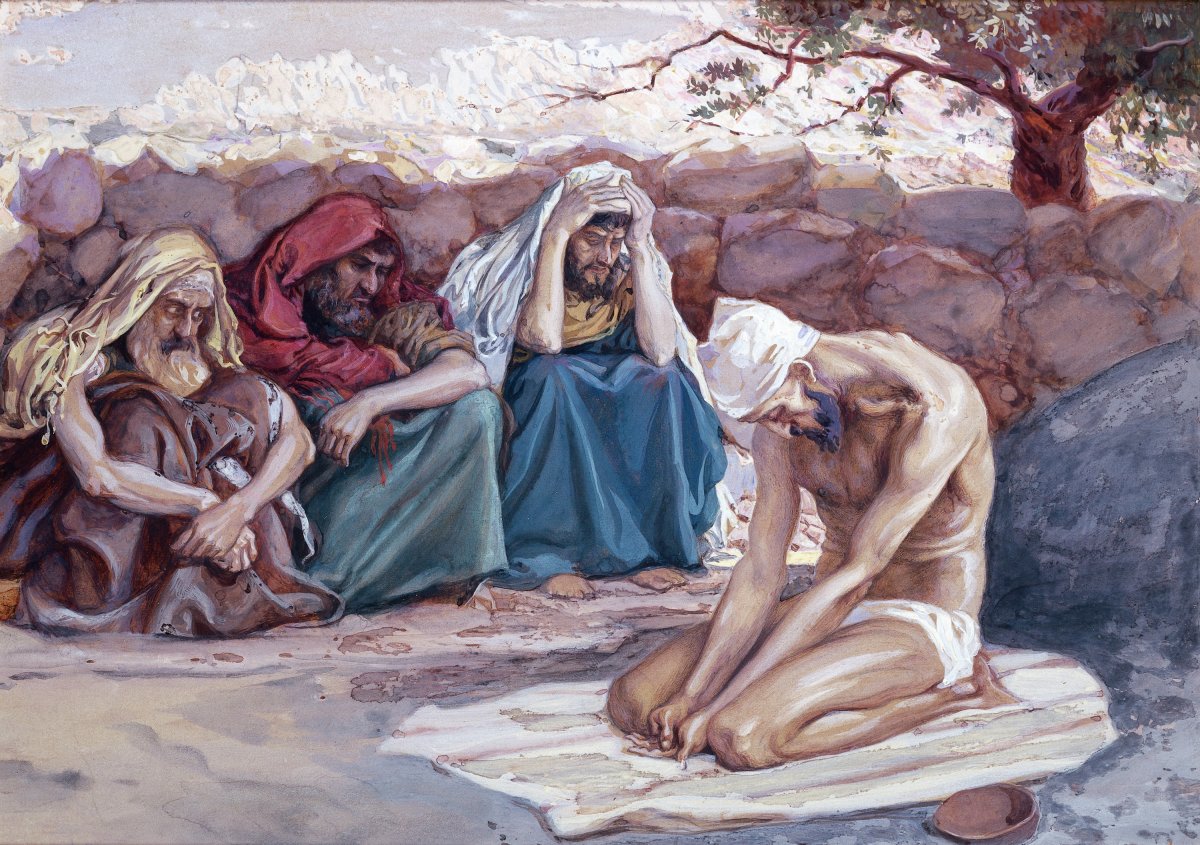The Biblical Status of the Divorcee, Episode IX



What Place Did Divorced Persons Hold In Biblical Society?
In the eyes of many, a divorced person occupies a lower rung of the social ladder, than does one who is married, or never married. This is especially true in the Lord's Church; but, is it right?
A divorcee is thought of as one who has failed at the most holy of all institutions, and the one which is basic to community—even to the fundamentals of civilization in general. In some extreme cases the divorced person is treated as an untouchable. Society often disparages both parties of a divorce, by promoting the idea that: in a divorce neither party is completely innocent. While this assessment may have some validity on a certain level, it must be pointed out that Christ makes up our lack, and His blood covers a multitude of sins. Therefore, the stigma, attached to the divorced and the remarried within the body of Christ, is completely unwarranted at the least, and unchristian at the worst.
We should ask: What is the Biblical status of a divorcee?
The answer to the above question is given clear enough in both Testaments of the holy Scripture. The Old Testament responds to this question in the following passages: Leviticus 21:7, 14; 22:13; and Numbers 30:9; while we may look to 1 Corinthians 7:8, 27, and 32 for the New Testamentʼs thought on the subject.
From the two witnesses (i.e. the Old and New Testaments) the divorcee is categorized along with the widow. Thus, the divorcee is located within society beside the person whose spouse is deceased. The following four passages demonstrate this quite well:
- Numbers 30:9 “But every vow of a widow, and of her that is divorced, wherewith they have bound their souls, shall stand against her.” ~ Both the widow and the divorcee hold the same status in regard to a vow. This is true because neither of the two are under the authority of a man.
- Leviticus 21:7, 14 “They” (the priests) “shall not take a wife that is a whore, or profane; neither shall they take a woman put away from her husband: for he is holy unto his God. ... A widow, or a divorced woman, or profane, or an harlot, these shall he not take: but he shall take a virgin of his own people to wife.” ~ The divorcee and the widow hold the same status in regard to marriage to a priest. The priests were bound to marry only virgins. Therefore, they could not take either a divorcee or widow to wife, because neither were virgins.
- Leviticus 22:13 “But if the priestʼs daughter be a widow, or divorced, and have no child, and is returned unto her fatherʼs house, as in her youth, she shall eat of her father’s meat: but there shall no stranger eat thereof.” ~ As the daughter of a priest, both the divorcee and the widow have access to the holy things. This is true because the provisions given to the priest were holy to the Lord and could not be partaken of by the unholy, nor the unclean. Thus, showing that the state of being divorced did not defile one.
- I Corinthians 7:8, 9, 11 “I say therefore to the unmarried and widows, it is good for them if they abide even as I. But if they cannot contain, let them marry: for it is better to marry than to burn. ... But and if she” (the wife) “depart” (from her husband), let her remain unmarried, ... .” ~ From verse 11 it is demonstrated that the person separated (or divorced) from his or her spouse is said to be “unmarried.” The Greek word is “agamas” (Strongʼs #NT 22) meaning: the opposite of married. One will notice that in verse 8 the apostle Paul categorizes unmarried (separated or divorced) with the widows, in regard to remarriage. Paul is not teaching that young people should not marry and raise families. Such teaching would militate against the will of God for the species, as demonstrated from the beginning: “Therefore shall a man leave his father and his mother, and shall cleave unto his wife: and they shall be one flesh” (Genesis 2:24). Plus, Paul had prefaced his instructions by verse 2; which states: “Nevertheless, to avoid fornication, let every man have his own wife, and let every woman have her own husband.” Also, it is important to recognize this apostleʼs strong pro-marriage stance in 1 Timothy 4:1-3; here, he taught that forbidding to marry would be a sign of end-time apostasy.
But concerning Paul some would say: “Paul said, ʻit is good for a man not to touch a woman.ʼ” Not so fast! This quote comes from verse 1 of 1 Corinthians chapter 7, and it most certainly is a quote of the Corinthians, which Paul refutes in verse 2 by showing that sexual relations have their proper expression within marriage. The chapter opens with Paul writing, “Now concerning the things whereof ye wrote unto me:... .” Then, Paul quotes one of the items from their letter: “It is good for a man not to touch a woman.” This was the Corinthianʼs quote—not Paulʼs. Paul writes this passage to encourage the Corinthians to render sexual compatibility to each other within marriage (see verses 2-5). Those at Corinth who were divorced or separated (unmarried), Paul advised: “It is good for them if they abide even as I” (verse 8). Given Paulʼs position within the temple hierarchy at Jerusalem, the chances that he was not married are slim to none. Paul was a Pharisee of the Pharisees - Acts 23:6. It was required of the Pharisees that they be married. If, by Paul's own admission he was one of the elite among them, he was married at one time. Historically, there is a tradition that Paul was married to a daughter of the high priest (a tradition about Paul, [Pan 30.16.1]), whose marriage to him was dissolved by the temple authorities upon his conversion to Christianity.
Since, therefore, it is quite probable that the Apostle Paul was married before his conversion, the passage recorded in 1 Corinthians 9:5 (where he defends his right to travel with a wife) is very telling of the Apostleʼs conviction concerning divorce and remarriage. He clearly understood his right to remarry and receive the aid of the churches in support for himself and his wife.
“Have we not power to lead about a sister, a wife, as well as other apostles, and as the brethren of the Lord, and Cephas?” (I Corinthians 9:5).
If Paul was widowed instead of divorce it is not likely, given the volume of his writing, that he would not have made mention of the fact. If, on the other hand, he was divorced it is altogether reasonable that no mention would be made of it out right.
When Paul wrote that it was good for the unmarried (divorced and widows) to remain as he was (i.e. unmarried), he realized he was asking something that was against nature. Therefore, he added that if they (the divorced and widows) could not “contain” their sexual urges, it was better for them to marry (they would not be sinning) than to burn with passion (verse 9).
There are two reasons that stand out from the Old Testament, as to why the widows and divorcees hold the same status in biblical culture. The first obvious reason is that neither are virgins. The second reason is that in both cases the spouses are dead. The husband of the widow is dead to her physically; the husband of the divorcee is dead to her legally, through the Bill of Divorcement (Deuteronomy 24: 1-4). The first reason (i.e. neither were virgins) disqualified both the widow and the divorcee from ever marrying a priest, who must (by law) marry a virgin. The second reason (i.e. both husbands were dead), assigns the widow and the divorcee to the same status in regard to a vow and remarriage. If a married woman made a vow unto the Lord, her husband had to validate it; but, the vow of a widow or divorced woman stood on its own merit: for there was no husband in either case to avow, or to disavow, the pledge. Both the widow and the divorcee were free from the Law of the Husband.
Therefore, the reason that the Biblical status of a divorcee was the same as that of a widow is that her husband (with all his authority: legal, social, religious, etc.) was dead to her. Everything that bound her to him (namely, The Law of the Husband—Romans 7:1-3) was dissolved in the Bill of Divorcement. When this is understood, one is left with no alternative but to accept the biblical right of a divorcee to remarry.
Apostolically Speaking
☩ J L Hayes
Read More From the Bishop On Divorce and Remarriage
- Christian Divorce and Remarriage
This series of articles answers the all consuming question: May a Christian divorce and remarry? This is the first of many article to come on the subject. Be sure to read them all. - Christian Divorce and Remarriage, (Egalitarian)
This article concludes the introduction to Christian Divorce and Remarriage. Here is discussed the egalitarian aspect of Divorce. - Marriage, As God Intended (Episode III, Christian Divorce & Remarriage)
This article examines the intention of God for marriage, in the beginning. What the Bible declares marriage to be is shocking to most. This is required knowledge for an understanding of divorce. - Divorce and Remarriage, Words of Institution
Moses sets forth the "Words of Institution" for divorce and remarriage. In this writing we will review those words in an expository study. - Certificate of Divorce (Diviorce and Remarriage, Episode V)
Here, for the first time we discuss the power of the "Certificate of Divorce" as a licenses to remarry - both for the guilty and innocent parties. - Biblical Grounds for Divorce and Remarriage (Divorce and Remarriage, Episode VI)
Here we explore the biblical reasons for divorce and remarriage. Many are convinced that the Bible gives no reason for divorce, others accept only 1, but this writer demonstrates. at least, 4. - Yahweh Hates Divorce? (Divorce and Remarriage, Episode VII)
Since the Bible states that God hates "Putting Away," it is important to harmonize this with God allowing divorce, and participating in it Himself. This article addresses that particular issue. - Biblical Examples of Divorce, Episode VIII
Examples are great teachers. A greater lesson can not be had that to witness how a biblical command was biblically executed. IN this study we will see just that in biblical examples of divorce. - The Words of Jesus On Divorce, Episode X
This article introduces all the words of Jesus concerning the subject of divorce. By this introduction of Christ's teaching on the subject we set a compass heading for further study. - The Apostolic Church, On Divorce - Episode XI
In this episode on divorce and remarriage we examine what the apostolic church (the Lord's church of the 1st century) had to say on the subject.
Own this amazing book by Bishop Jerry Hayes









